Peptic Ulcers & Acupuncture Treatment in Tokyo
1. What Are Peptic Ulcers?
Peptic ulcers are open sores that develop on the inner lining of the stomach (gastric ulcers), upper small intestine (duodenal ulcers), or even the lower esophagus. They form when the protective mucosal layer is eroded by digestive acids, most often due to an imbalance between aggressive factors (like acid or Helicobacter pylori) and defensive factors (like mucous and bicarbonate).
According to the World Health Organization (WHO), millions of people suffer from ulcers globally, with common symptoms affecting quality of life and digestion.

2. Symptoms and Pain Patterns of Peptic Ulcers
Peptic ulcer pain is typically described as a burning or gnawing sensation in the stomach area, often:
- Occurring 2–3 hours after eating
- Worsening at night
- Temporarily relieved by eating or antacids
- Accompanied by bloating, burping, nausea, or early satiety
In severe cases, ulcers can lead to bleeding, perforation, or obstruction, requiring urgent medical attention.
3. Root Causes from a Western Medicine Perspective
The primary causes include:
- pylori infection: This spiral-shaped bacterium weakens the protective mucous layer, allowing acid to create ulcers.
- NSAIDs: Prolonged use of pain relievers like ibuprofen or aspirin can damage the stomach lining.
- Smoking and alcohol: These aggravate acid secretion and impair healing.
- Stress: Though not a direct cause, stress exacerbates symptoms and delays healing.
Conventional treatments include antibiotics, proton pump inhibitors (PPIs), and lifestyle changes—but these come with side effects or limited long-term success.
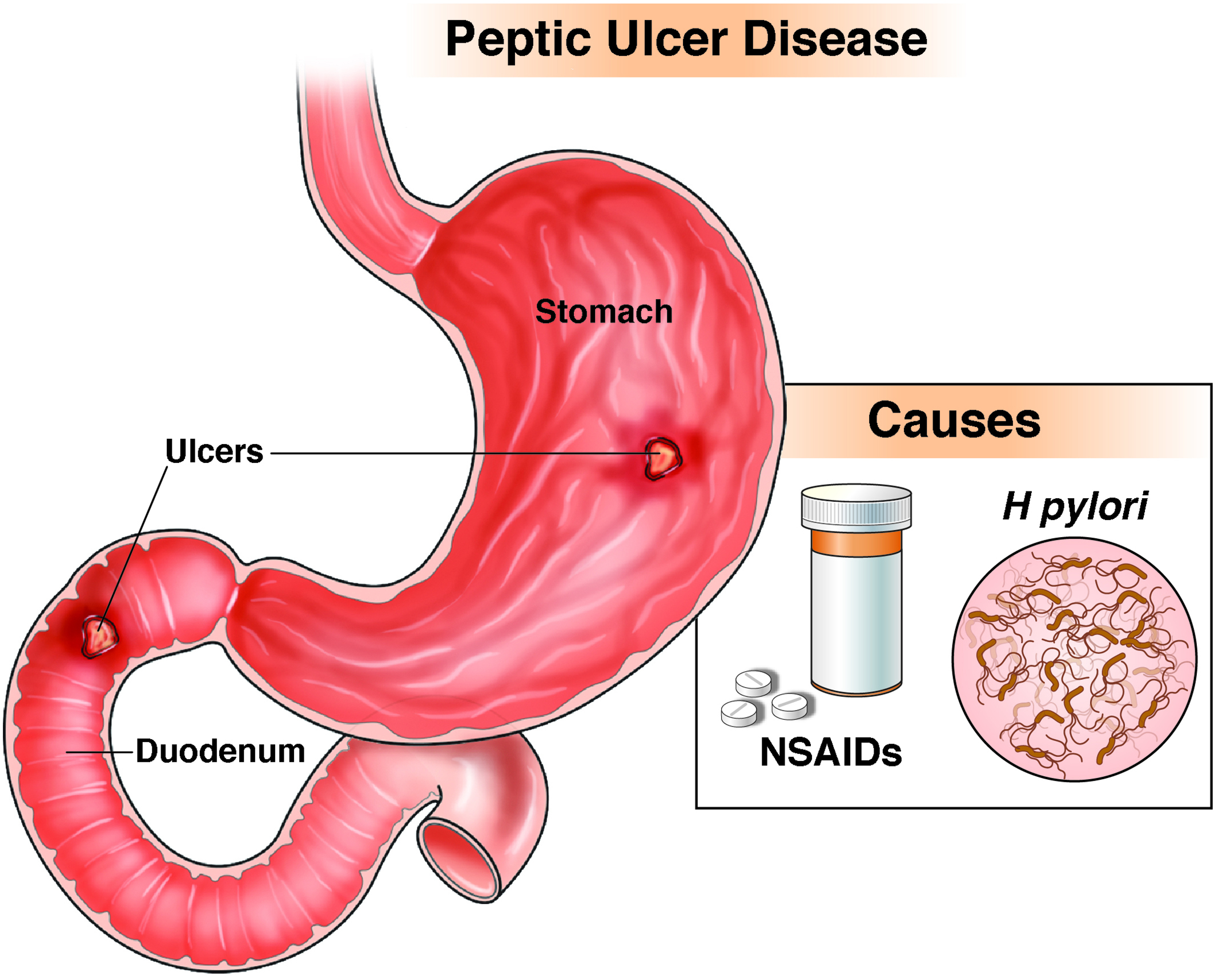
4. TOM View: The Energetic Imbalances Behind Ulcers
In Traditional Oriental Medicine, peptic ulcers are not just local problems but signs of deeper systemic disharmony. Ulcers are seen as manifestations of:
- Liver Energy stagnation: Stress and emotional tension disrupt the liver’s flow of Energy , which invades the stomach and causes pain.
- Spleen and Stomach Energy deficiency: Weak digestion means food and fluids aren’t transformed properly, leading to dampness, stagnation, or ulceration.
- Stomach heat or fire: Excess heat “burns” the stomach lining, generating sores.
- Blood stasis: Poor circulation in the stomach lining prevents healing.
Each patient is evaluated holistically, and acupuncture is used to restore the flow of Energy and blood, reduce heat, and strengthen digestive function.

5. How Acupuncture Heals Peptic Ulcers
Acupuncture offers a multi-pronged approach to ulcer healing by:
🌿 Regulating Gastric Acid Secretion
Needling specific acupoints calms the central nervous system and balances parasympathetic activity, leading to a reduction in excessive gastric acid production.
🌿 Enhancing Mucosal Protection
Studies show acupuncture boosts protective factors like prostaglandins and mucus secretion, helping rebuild the stomach lining.
🌿 Reducing Stress and Anxiety
Acupuncture activates the vagus nerve and helps rebalance the hypothalamic-pituitary-adrenal (HPA) axis, leading to improved mood and lower cortisol levels—a key benefit since stress is a major aggravator of ulcers.
🌿 Promoting Blood Flow and Tissue Repair
By improving local blood circulation, acupuncture enhances the delivery of oxygen and nutrients to the ulcer site, accelerating healing.

6. Key Acupoints Used in Peptic Ulcer Treatment
Several acupuncture points are commonly used, depending on the patient’s constitution and specific symptoms:
1. Zhongwan (CV12 – 中脘)
- Location: Midline of the abdomen, halfway between the navel and the sternum
- Function: Harmonizes the Stomach, tonifies Spleen Energy , reduces rebellious Energy
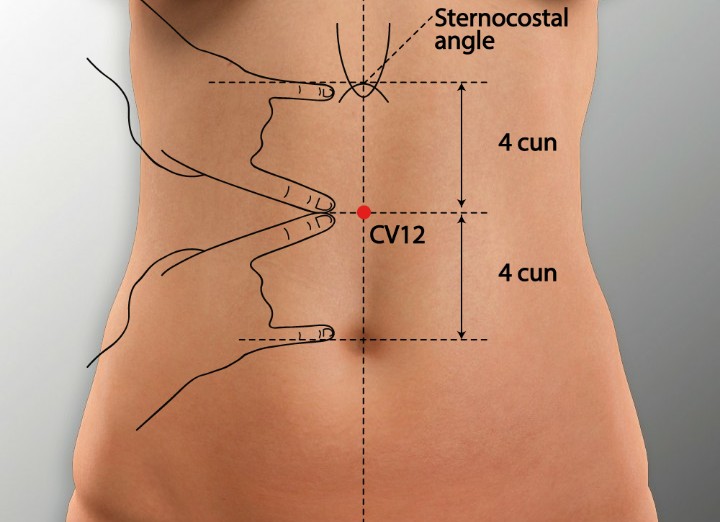
2. Neiguan (PC6 – 内关)
- Location: Inner forearm, about 2 cun above the wrist crease
- Function: Calms the spirit, regulates the Stomach, relieves nausea

3. Zusanli (ST36 – 足三里)
- Location: Below the knee, about one handbreadth down and one fingerbreadth lateral to the shin bone
- Function: Strengthens digestive function, boosts immunity, relieves pain
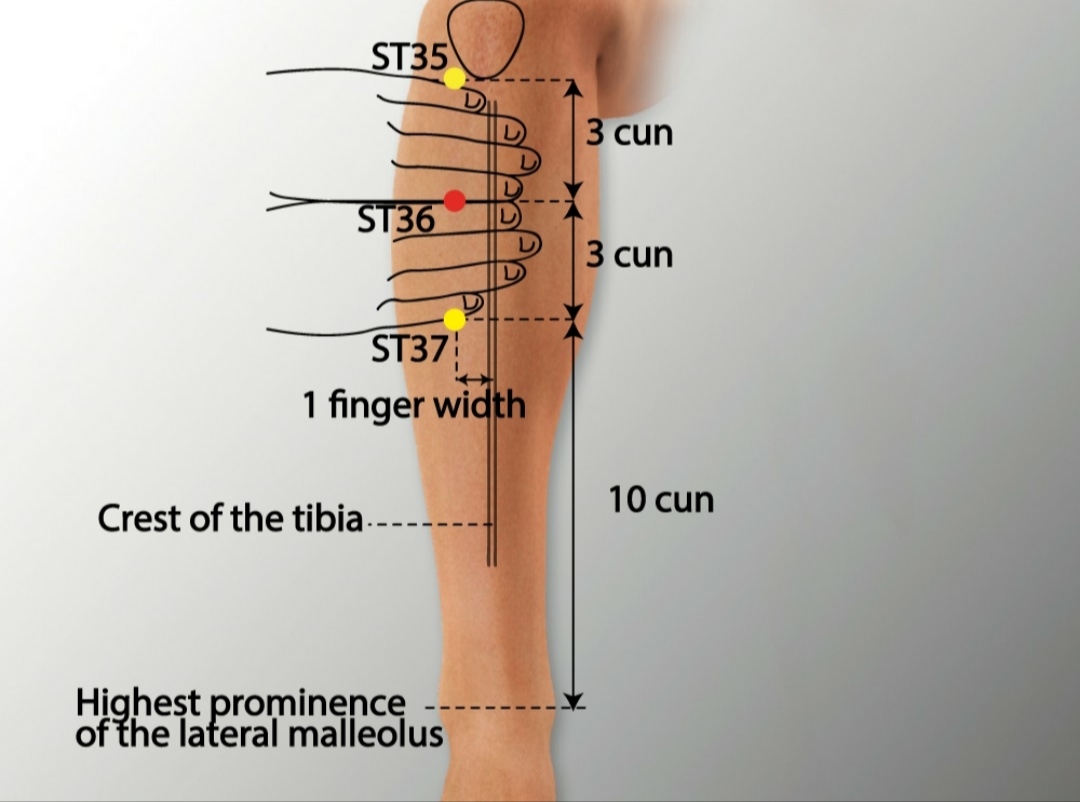
4. Gongsun (SP4 – 公孙)
- Location: On the arch of the foot
- Function: Regulates Spleen and Stomach, resolves dampness, opens the Chong Mai (penetrating vessel)
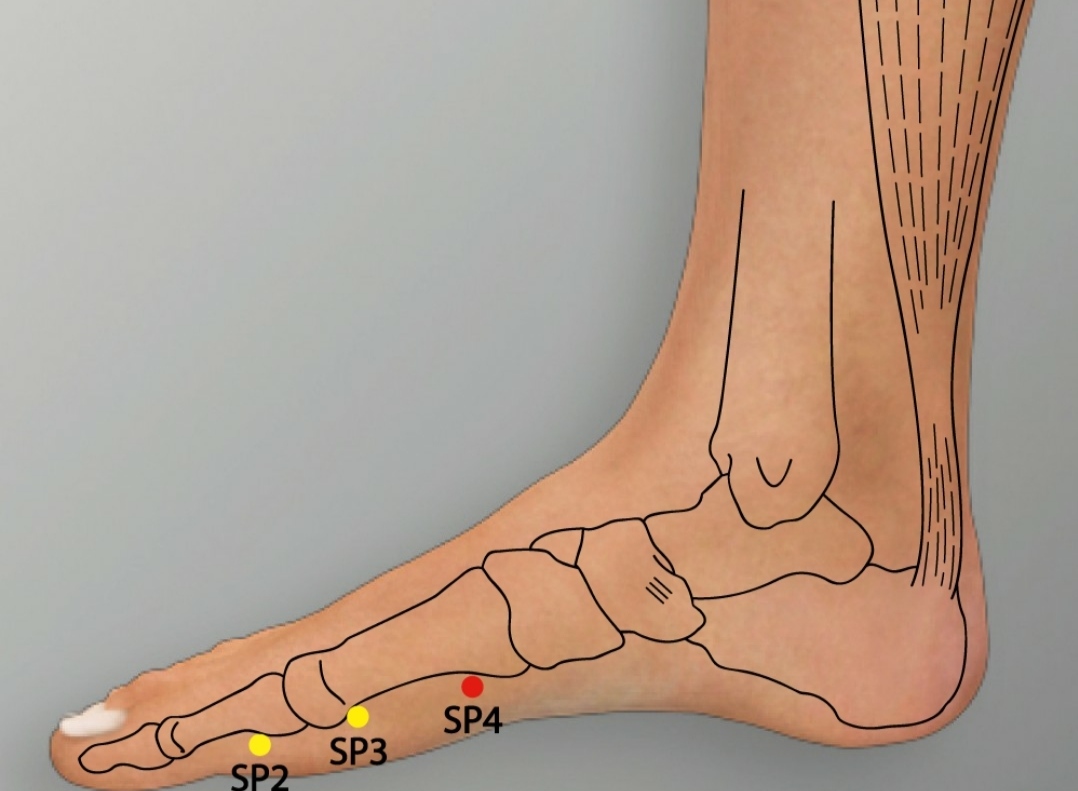
5. Taichong (LV3 – 太冲)
- Location: Between the big toe and second toe
- Function: Soothes Liver Energy , calms stress, relieves abdominal pain from Energy stagnation
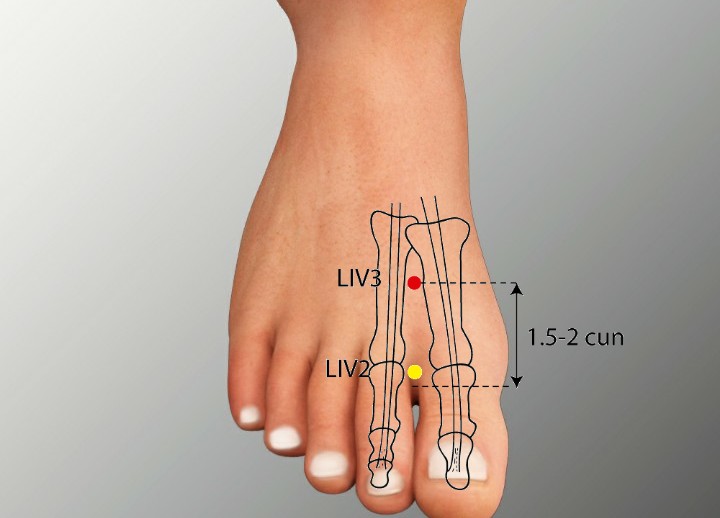
6. Shenmen (HT7 – 神门)
- Location: On the wrist crease, at the radial side of the flexor carpi ulnaris tendon
- Function: Calms the spirit, helps with sleep and emotional tension
Each session is tailored, and a combination of local (abdominal) and distal (hand/foot) points is used to balance internal organs and emotions.
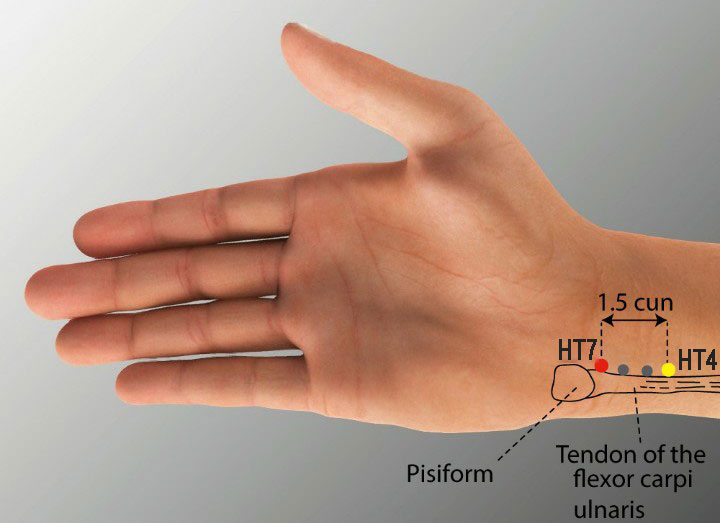
7. Scientific Evidence Supporting Acupuncture for Ulcers
Though more research is needed, several studies support the effectiveness of acupuncture in managing peptic ulcer symptoms:
- A meta-analysis published in Evidence-Based Complementary and Alternative Medicine (2021) found that acupuncture significantly reduced ulcer pain, recurrence rate, and improved endoscopic healing compared to medication alone.
- Animal studies show acupuncture reduces gastric acid secretion, improves mucosal blood flow, and accelerates ulcer healing.
- Functional MRI (fMRI) scans demonstrate how acupuncture affects brain regions related to pain, stress, and gut motility.
8. Patient Experience: What to Expect During Treatment
A typical course of acupuncture for peptic ulcers involves:
- Initial assessment: Includes tongue and pulse diagnosis, dietary review, and symptom tracking.
- Treatment plan: Usually 2–3 sessions per week for the first month, tapering as symptoms improve.
- Sensation: Mild tingling or heaviness may be felt at the needle site—this is a positive response.
- Duration: Each session lasts around 30–45 minutes, often combined with heat therapy (moxa) or herbal prescriptions.
Most patients report not only relief in ulcer pain but also better digestion, sleep, mood, and energy.
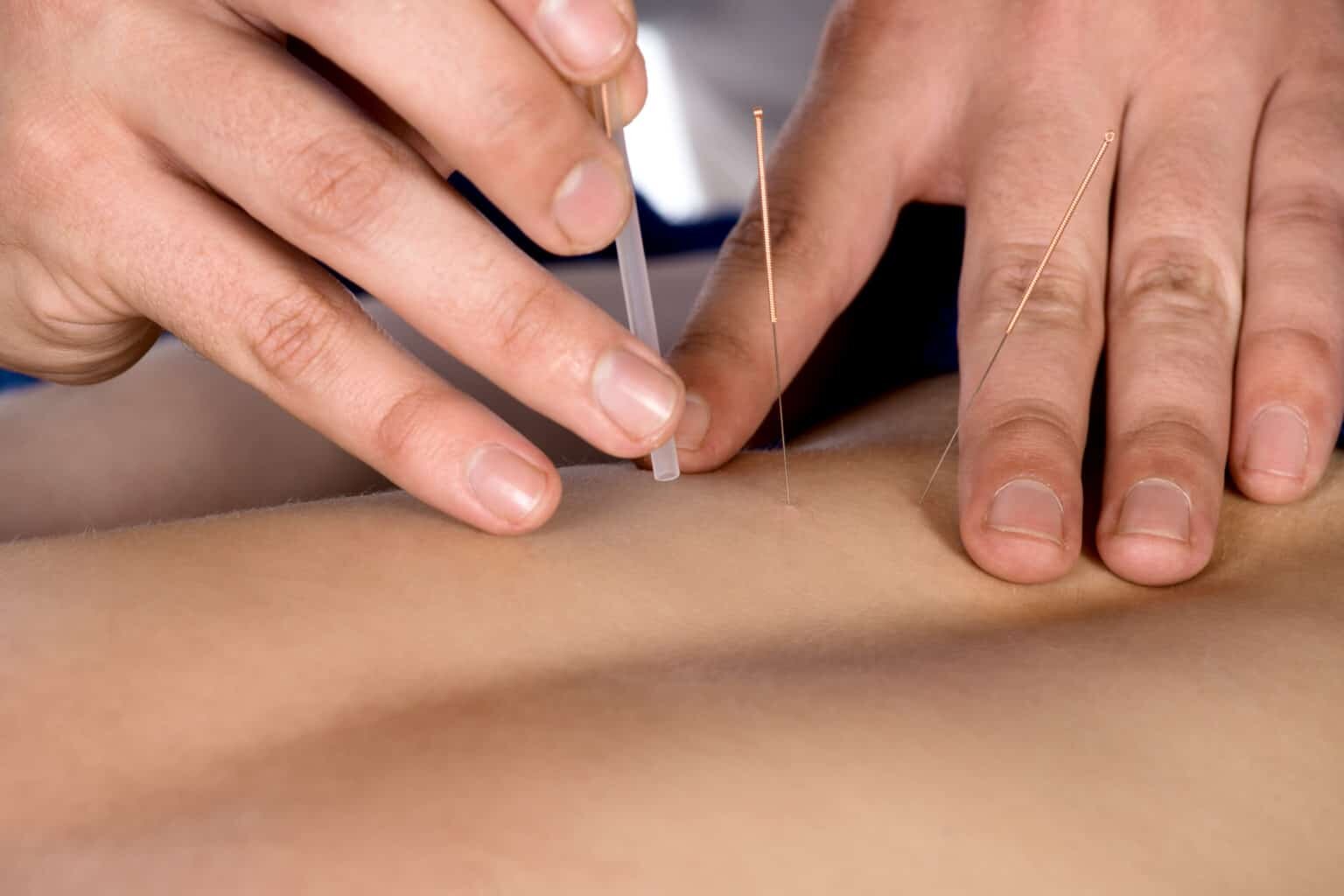
9. Combining Acupuncture with Diet and Lifestyle
Acupuncture works best when supported by healthy daily habits. For ulcer patients, TOM practitioners often recommend:
🍵 Dietary Guidance
- Eat warm, cooked foods (soups, congee)
- Avoid spicy, greasy, or overly sour foods
- Eat small, regular meals to avoid gastric irritation
🧘♀️ Stress Reduction
- Practice mindfulness, gentle yoga, or tai chi
- Sleep by 10 p.m. to support Liver and Stomach yin
💧 Herbal Medicine
- Formulas like Xiang Sha Liu Jun Zi Tang or Ban Xia Xie Xin Tang may be used to treat underlying Energy stagnation or damp-heat.
Consistency is key. Healing ulcers is not just about reducing pain but transforming the root imbalances that caused them.
10. Conclusion: A Gentle Path to Gut Healing
Peptic ulcers can be painful, persistent, and disruptive—but you don’t have to walk the road to recovery alone or rely solely on medication. Acupuncture offers a time-tested, holistic approach that addresses both the symptoms and the root cause of digestive imbalance. By regulating acid, promoting mucosal repair, calming stress, and harmonizing internal organ systems, acupuncture empowers your body to heal from within.
If you’ve been struggling with ulcer symptoms or feel like conventional treatments aren’t enough, it may be time to explore the gentle, effective world of acupuncture. Consult a qualified practitioner today and take the first step toward lasting gut health.
Fuji Wellness:
- Address: 132-0031 Matsushima 1-chome, 21-14, Tokyo, Japan
- Chat with us: Click here
- Email: sunnyphamsensei@gmail.com


